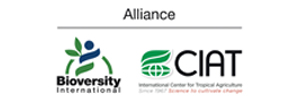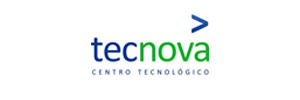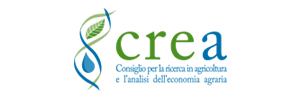Introduction to the RUSTICA project
The overall objective of the RUSTICA project is to foster the technical validation, demonstration and implementation of bio-based fertiliser and soil improvement production techniques focusing on waste from the fruit and vegetable system to close nutrient cycles. This objective will be achieved through a transdisciplinary multi-actor approach, which aims at validating, demonstrating and integrating 6 technological options for mineral nutrient recovery from fruit and vegetable waste streams in 4 regions across the European Union and 1 in South America.
The technical solutions, offered by RUSTICA, consist of six technologies (five emerging and one established) through five conversion processes (carboxylic acid platform, microbial biomass production, electrodialysis, insect breeding and biochar production) which can be combined depending on the available waste streams, and integrated with state-of-the-art technologies such as composting. Synergies between the individual conversion processes will be optimized to maximize economic and environmental benefits. The resulting ingredients (microbial biomass, mineral nutrient concentrates, insect biomass, insect frass, insect chitin, biochar) will be combined to obtain tailor-made fertiliser products adapted to specific crop needs.
Objectives:
- Validating the use of five emerging technology solutions for the valorization of fruit and vegetable waste, recovering more than 90% of the released nutrients
- Implementing emerging technologies such as carboxylic acid platform, microbial biomass production, insect biomass production, biochar production and electrodialysis
- Converting slowly degradable fruit and vegetable waste into 20% insect biomass and 80% frass
- Identifying the most optimal circular solution for the waste streams of each region
- Demonstrating the technical feasibility to replace 5-10% of the current mineral fertiliser use by circular biofertilisers at a regional level by 2040
Parallel with the technological innovation and integration, RUSTICA aims to provide market solutions for a successful implementation of potential valorisation technologies. In doing so, several non-technical aspects, such as environmental and social LCA, legal framework, expected market developments, will be evaluated in the 5 regions. In studying market solutions, RUSTICA aims to involve relevant stakeholders at each step of its research development in order to guarantee the development of marketable end-products for the fruit and vegetable sector, with a high replication potential to other agricultural sectors. Moreover, Rustica plans to cooperate with other EU-funded projects working on nutrient recovery from other waste products to stimulate a joint marketable solution to evolve towards sustainable and circular fertiliser management to close nutrient cycles within and between regions.
Objectives:
- Analysing economic and environmental viability of RUSTICA technologies
- Analysing current and future supporting legal frameworks for RUSTICA technologies
- Assessing the social impact of RUSTICA technologies on the different regions
- Developing different configurations for potential value chains and business models
- Developing successful business models of multi-valorisation of regional fruit and vegetable waste streams
Benefits of involvements for the RUSTICA project and stakeholders
Not only will the pilots host field cross-visits for the regional multi-actor networks in this project, but also various communication and dissemination activities will be organised for regional stakeholders who are not directly involved in the project to exchange knowledge and experiences related to current nutrient recovery technologies for vegetable and fruit waste streams.
In order to enable the knowledge flow between the different partners and stakeholders, a knowledge exchange network will be created, which will include the regional knowledge brokers. All stakeholders along the value chain, from waste producers, over technology providers, farmer associations, biofertiliser producers & users, experts in legal/safety & sustainability analysis, business developers, etc., will be asked to be actively involved in the pilot demonstrations. Through such active involvements, different networking opportunities will be created. Additionally, stakeholders will not only gain insights on how the technology is developing and how it could match the regional demand, also they can share insights into how RUSTICA solutions should be developed knowing regional contexts. In this way, RUSTICA solutions could match better their interests.
The RUSTICA target is to establish regional multi-actor networks across the European Union and South America and develop solutions in the context of food waste revalorisation. The regional multi-actor networks are an opportunity to get detailed information on potential unique selling points of biofertilisers. All the RUSTICA partners will co-develop, within these regions, practical, tailor-made multi-actor business models that can be used by the regional communities during and after the project period for the establishment of a multi-valorisation chain of fruit and vegetable waste.
Modes of involvement
The main method of involvement for RUSTICA will be through workshops. RUSTICA plans to establish five regional networks, where regions are Flanders, Almeria, Friuli-Venezia Giulia, Pays de la Loire and Valle del Cauca. For each region, six workshops with a minimum of 10 participants will be organised. Participants in such workshops will be ideally from different backgrounds, sectors and fields representing RUSTICA regions.
Moreover, at least two international workshops (one in Brussels and one in South America) will be organized to discuss the replicability of technical, market and business solutions with the relevant stakeholders.
Three possible modes of involvement in RUSTICA knowledge network:
- Actor: as an actor, you will be joining the workshops aimed at your involvement (e.g. as a regional actor you participate in the workshops held in your region) and moreover, you will be directly involved in the development of the project in a way that suits your expertise. Actors could include the consortium partners, as well as strongly involved partners external to the consortium, during certain moments of the project.
- Stakeholder: you join every now and then in the workshops or other project activities that are related to your expertise. When you join, you actively participate in the development of the parts of the project which are relevant to you. A stakeholder is described as a ‘person or group, served by, affected by or expressing a view (stake) at a certain moment during the project’.
- Just stay informed!: you want to get information on the progress of the project. You can give feedback on this information if you want to.
With the minimum level of involvement (i.e. role of informant), the interested companies will be only subscribed to the official newsletter of RUSTICA to receive relevant information about the project.
Everyone can register and can be accepted as an informant. When candidates register as an interested stakeholder or actor, the regional knowledge broker, according to the location of the interested party, will decide on their application. The knowledge brokers will inform them if and when they will be contacted to take part in the workshops, depending on the mix of types of actors and stakeholders needed for the specific workshop, and the capacity of participants during the workshops (10 to +-20).
Considering the geographical perspective, the RUSTICA project will communicate at:
- Local/ regional level: Partners will be encouraged to use their national and local networks, events and media to make the project visible to companies and present RUSTICA in congresses, conferences and workshops.
- International level: The consortium aims at drawing international attention to the project. In line with this, RUSTICA will contact associations, organizations and platforms related to valorisation chains focusing on waste from fruit and vegetable systems. At the beginning of the project, information about it will be sent using the communication channel EIP-AGRI contact point.
Registration form
The registration of those institutions that are interested in participating in the RUSTICA project are invited to fill out this application form with their contact information.
This data will be collected and stored according to the GDPR in the EU Regulation 2016/679. The companies will give consent to the processing of their data for one or more specific purposes (Art. 6.1.a). Thus, the companies shall have the right to withdraw their consent at any time (Art 7.3). Following the fair and transparent processing of data provided in the European Regulation, all the actions taken for the project’s purposes regarding this data will be communicated to all the registered involved companies. The data from the companies will not be publicly shared. This data will be internally treated by the knowledge brokers of each region.
The companies shall have the right to obtain the erasure of the data concerning them when their data are no longer necessary in relation to the purposes for which they were collected (Art 17.1). For that reason, the data collected from the registration form will be erased from the database when the RUSTICA project comes to an end in December 2024.
For the RUSTICA project, 25 external stakeholders or actors will be the limit of involved companies for each of the five networks. If more companies are interested in getting involved in one of the networks of RUSTICA, a higher limit than 25 companies will be considered.
More information
For more detailed information, as well as for further questions, kindly ask the knowledge broker of your region.







